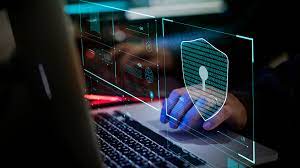Copyright and Piracy in Information Control
Apr 01, 2023
This assignment discusses copyright and piracy in information control. Copyright is the exclusive legal right to reproduce, publish and/or sell a literary, musical, artistic or other creative work. It gives the creator of an original work exclusive rights in regard to its use and distribution for a certain period of time. Copyright protects works such as books, software, music transcripts, photographs and videos from being reproduced without permission.
Piracy refers to the unauthorized reproduction or use of copyrighted material. This includes downloading digital content (such as movies) without paying for it, copying CDs or DVDs, illegally sharing music files over networks like BitTorrent and selling counterfeit copies of products. According to the World Intellectual Property Organization (WIPO), piracy costs copyright owners billions of dollars every year in lost revenue.

The purpose of copyright and piracy laws is to promote creativity by providing creators with an incentive to produce new works, while simultaneously preserving the integrity of those works from theft or misuse. By controlling how copyrighted material can be used and distributed, laws ensure that creators are appropriately compensated for their work and that rights holders have some degree of control over its use.
At the same time, balance must be maintained between the interests of copyright owners and users. Too much control over intellectual property can stifle innovation and limit access to knowledge and creative works. To this end, many countries have enacted legislation allowing certain uses of copyrighted material under "fair use" exemptions (such as educational purposes). Additionally, Creative Commons licenses offer a way for creators to share their work while still retaining some control.
Ultimately, copyright and piracy laws play an important role in information control. They protect the rights of creators while also allowing for a balance between access and protection. The challenge is finding the right balance that will maximize creativity while maintaining fairness. With advances in technology, this challenge becomes more difficult as new forms of distribution and usage become possible. It is up to governments, organizations and individuals to ensure that copyright and piracy laws are effective at protecting works and promoting innovation.
